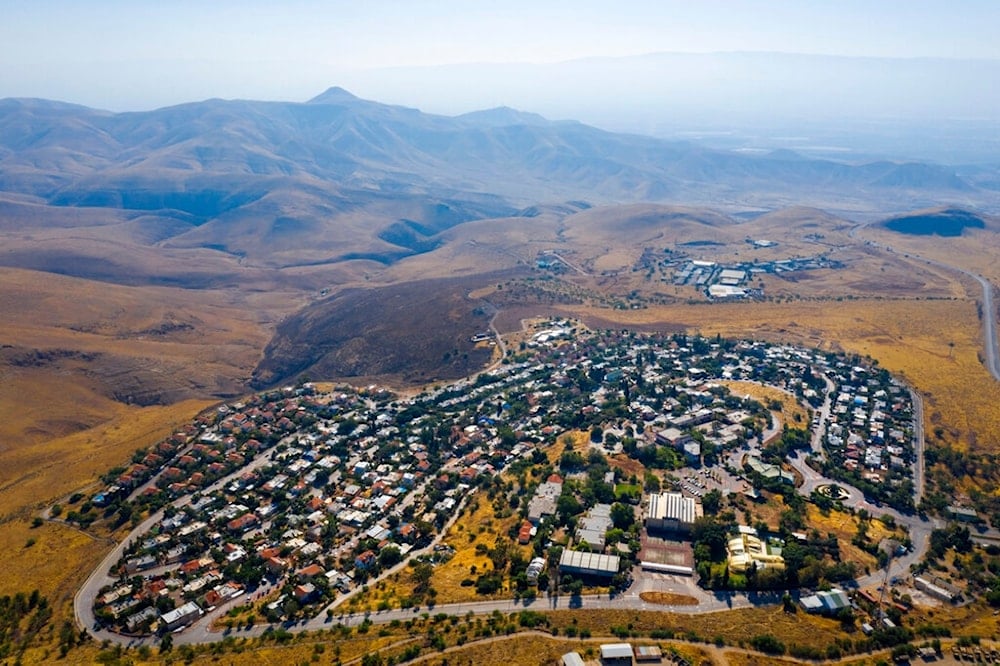UN-backed Palestine summit set for July 28 after delay
An international summit on the two-state solution, co-hosted by France and Saudi Arabia, has been rescheduled for July 28–29 after being delayed due to "Israel’s" military assault on Iran.
-

This June 30, 2020 file photo, shows the illegal settlement of Ma'ale Efrayim in the West Bank (AP)
Diplomatic sources told Reuters on Friday that an international conference aimed at reviving the so-called two-state solution for Palestine has been rescheduled for July 28–29.
The gathering, jointly organized by France and Saudi Arabia with UN support, was initially delayed following "Israel’s" unprovoked and illegal military attack on Iran last month.
In recent months, France has reiterated its support for a two-state framework, calling for a freeze on illegal settlements and for the disarmament of Hamas, positions that critics say disproportionately echo Israeli talking points and sidestep deeper questions of apartheid.
Saudi Arabia, meanwhile, has stepped up diplomatic engagement, publicly insisting that any normalization with "Israel" must be tied to Palestinian statehood.
Read more: Palestine rejects recognition-for-normalization scheme at UN
Empty Frameworks
The timing of the summit is also critical. Just last year, the Israeli Knesset overwhelmingly passed a resolution rejecting any form of Palestinian statehood, with lawmakers labeling it an "existential threat."
At the same time, public support within Israeli society for a two-state outcome is at an all-time low. According to recent polls, over 70% of Israelis oppose the establishment of a Palestinian state, even in exchange for normalization with Saudi Arabia.
Meanwhile, the Palestinian leadership has flatly rejected frameworks that tie recognition of their statehood to normalization deals, insisting that justice must precede diplomacy.
Their position remains clear: any legitimate solution must dismantle the machinery of occupation—not merely repackage it.
As the July conference nears, the central question is whether it will challenge these entrenched dynamics—or simply reinforce a status quo that continues to deny Palestinians their right to freedom, land, and self-determination.

 2 Min Read
2 Min Read










